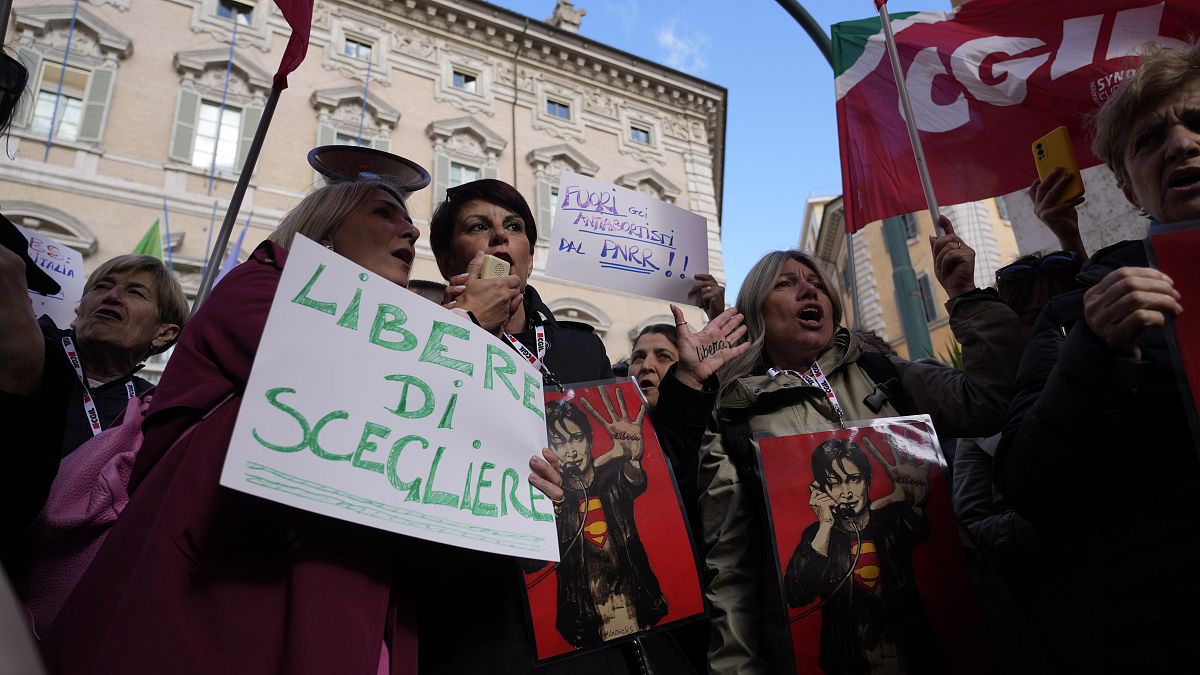Women’s rights campaigners say a surge in support for the far-right in Europe has made efforts to fund abortion at the EU level even more urgent than before.
Campaigners working to get a funding mechanism for abortion at a European level say the election results have made the effort even more urgent than before.
While pro-European parties will retain a majority in the parliament, the elections resulted in a surge in support for the far-right that had been predicted for weeks in the polls.
In France, the far-right National Rally (RN) came first with 31 per cent of the vote in a rebuke of Emmanuel Macron’s Renaissance party which came in second with 15 per cent.
Far-right parties also came first in Austria and Italy while making gains in Germany and Spain.
For European women’s rights activists with the My Voice, My Choice campaign, these results have reinforced the need for abortion funding at the EU level, an effort they say is in part a fight against far-right parties that have supported restricting access.
The campaign aims for the European Commission to have funding so that EU member states can provide the service to “anyone in Europe who still does not have access to safe and legal abortion”.
It was an effort that was in particular supported by Polish activists who have been working to overturn a near-total ban on the procedure at home.
Polish women’s rights activists told Euronews Health that if they could not get the law changed in Poland, where the right-wing Law and Justice (PiS) party for years supported hardline restrictions on abortion, they would take the issue to the EU level.
There was further momentum to push for abortion funding at the European level after the French parliament voted to change the constitution to make ending a pregnancy a “freedom” in response to many US states passing laws to restrict access.
While RN leaders voted in favour of the measure, some right-wing and far-right MPs abstained or voted against it.
The activists across multiple EU countries have now gathered half the signatures necessary for the citizens’ initiative and hope to start discussions with the European Commission and Parliament soon about the effort.
Could the election result influence the campaign?
Alice Coffin is coordinating the My Voice, My Choice campaign in France and has been travelling to strongholds of the far-right as part of the effort to collect signatures.
“I have very good reasons to believe that this [European] parliament, still in its current state, is capable of voting [this measure],” Coffin told Euronews Health, adding however that it would be a “political fight”.
“If France managed to find a majority in the French Senate to vote for abortion in the constitution, I am sure that we can find a majority in the European Parliament to vote,” she added.
But, she said, “It will be more complicated and above all what [the election results] show is even more urgency for such an initiative to be [voted]”.
Spanish coordinator Kika Fumero, a specialist in sexual and gender violence, agreed that as far-right parties gain seats in Europe, it could become more difficult to get funding for reproductive rights overall.
“As the right and far-right gain power in European institutions (and at the national level), it will become more difficult to legislate or design public policies, such as funding programme for so-called support competencies, which include sexual and reproductive rights, and more specifically, abortion,” said Fumero.
“In some cases, it will even be impossible, depending on the number of votes required… [so] the election results have a direct impact on obtaining European funds to develop public policies in this area,” she added.
For Coffin, the election results show it is increasingly urgent “to forge practices, reflections, communities of resistance and struggle outside traditional political parties”.
The results in France also “reinforce” the importance of having inscribed abortion in the Constitution, she said.

